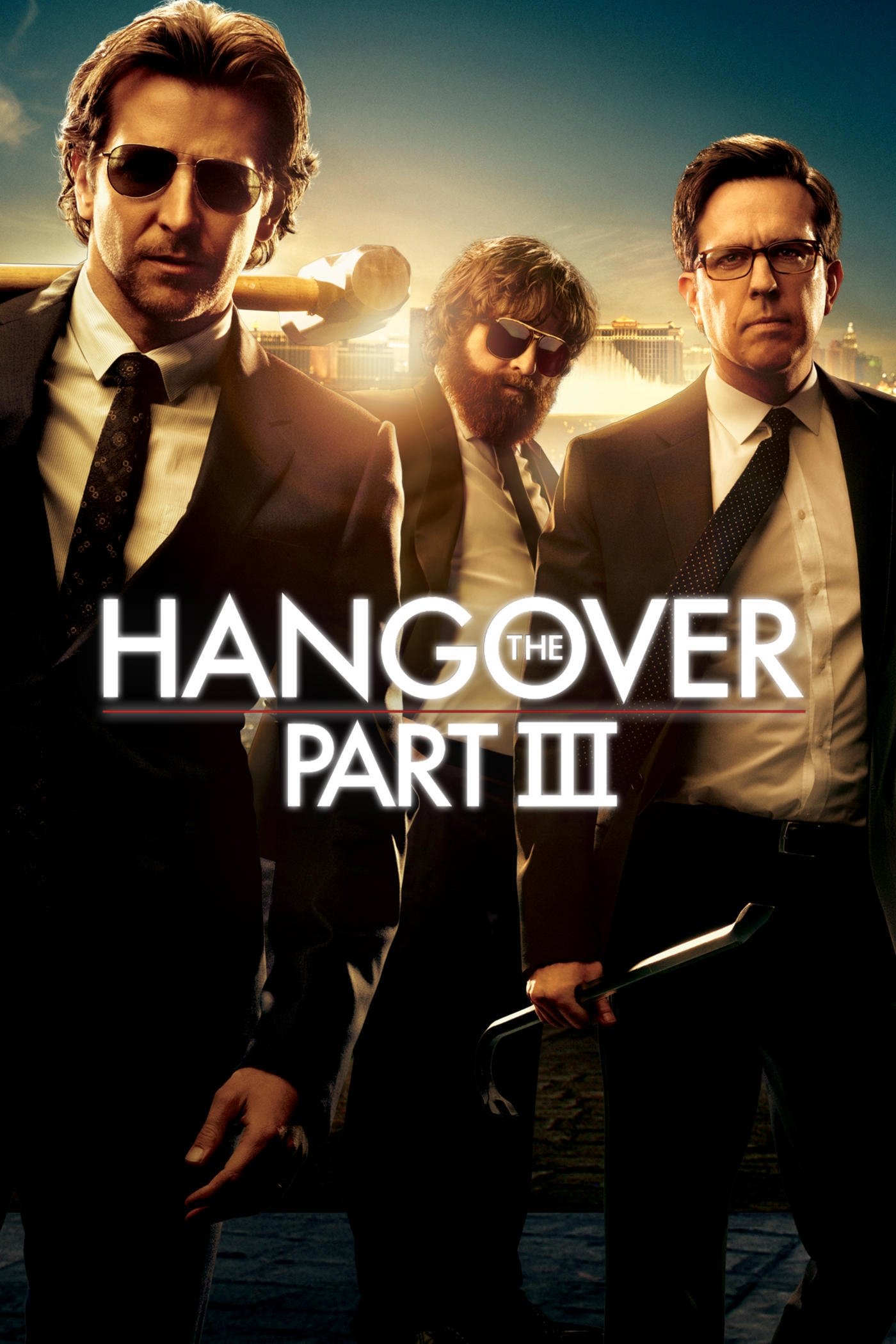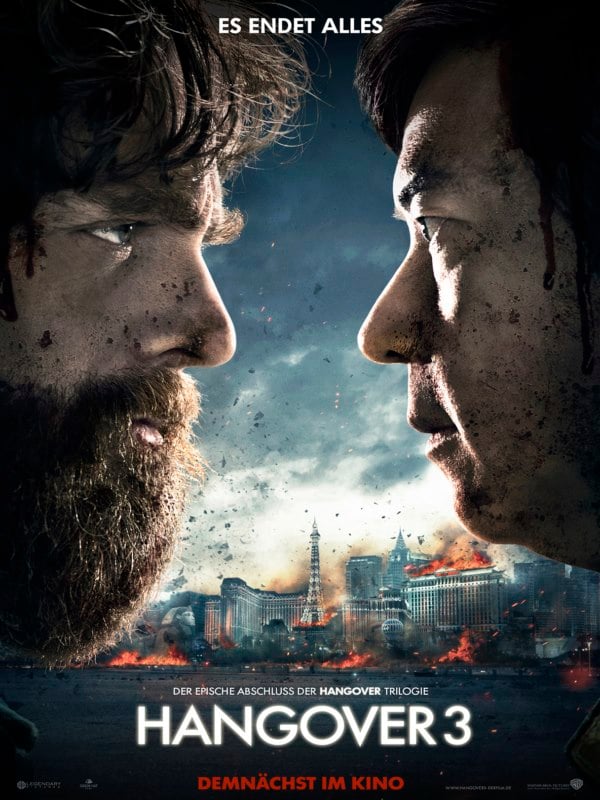The Hangover Part III: Box Office & Plot Details!
Can a comedy, even one steeped in the raucous and the ridiculous, truly resonate with an audience beyond the initial laughter? "The Hangover Part III," the final installment in the raucous trilogy, gambles on this question, and the results, both financially and critically, offer a compelling study in audience expectations and the evolution of a franchise.
The journey of "The Hangover" franchise, from its unexpected breakout success to its somewhat predictable, albeit commercially successful, conclusion, is a fascinating one. The first film, released in 2009, was a breath of fresh air, a cleverly crafted comedy that tapped into the anxieties and absurdities of modern male friendship. It was a genuine surprise hit, earning critical acclaim and becoming a cultural phenomenon. The sequel, "The Hangover Part II," while still financially successful, began to show signs of fatigue, recycling familiar tropes and trading originality for spectacle. "The Hangover Part III," released in 2013, faced the daunting task of delivering a satisfying finale while attempting to avoid the pitfalls of diminishing returns. It attempted to break from the established formula of the previous two movies.
| Title | The Hangover Part III |
| Directed by | Todd Phillips |
| Starring | Bradley Cooper, Ed Helms, Zach Galifianakis, Justin Bartha |
| Release Date | May 24, 2013 |
| Genre | Comedy |
| Budget | $103 million |
| Worldwide Gross | $362 million |
| Synopsis | The Wolfpack, now facing Alans mental health issues and a threat from an angry gangster, find themselves back in Las Vegas and on the run. |
| Key Themes | Friendship, Consequences, Redemption (Somewhat) |
| Rotten Tomatoes Score | 20% |
| Metacritic Score | 40/100 |
| Reference Website | IMDb - The Hangover Part III |
The narrative of "The Hangover Part III" deviates from its predecessors. The film opens with the death of Alan's father, leading the "wolf pack" Phil (Bradley Cooper), Stu (Ed Helms), and Doug (Justin Bartha) to embark on a road trip to take Alan (Zach Galifianakis) to a treatment facility. This journey, however, is abruptly interrupted when they are confronted by Marshall, a ruthless gangster (John Goodman), who holds a grudge against Mr. Chow (Ken Jeong), the flamboyant and unpredictable antagonist from the previous films. Marshall forces the Wolfpack to track down Chow, who has absconded with Marshall's gold. This sets the stage for a cross-country chase that culminates, inevitably, in Las Vegas.
The film's financial performance offers a window into its reception. "The Hangover Part III" grossed a respectable $112.2 million in North America and an additional $249.8 million in other territories, resulting in a total worldwide gross of $362 million against a production budget of $103 million. This is a significant sum, confirming the enduring commercial appeal of the franchise. However, a closer examination reveals a more nuanced picture. The film's opening weekend, while solid, didn't match the heights of its predecessors. Critics and audience reviews were considerably less enthusiastic, pointing to a perceived lack of comedic freshness and an over-reliance on familiar elements. It earned $3.1 million in late Wednesday night screenings ahead of its wide release on May 24, 2013, and was projected to earn $80 million in its first four days.
One of the most significant shifts in "The Hangover Part III" is the diminished role of the mystery element. The previous films built suspense around piecing together the events of a lost night. This time, the focus shifts away from the "what happened last night" structure to a more direct, action-oriented narrative. This change proved to be a double-edged sword. While it provided a different pace, it also stripped away a crucial element of the franchise's initial appeal. The chaotic, unpredictable nature of the first film was replaced with a more structured, albeit still absurd, plot.
The performances of the core cast remain a highlight. Bradley Cooper, Ed Helms, and Zach Galifianakis, particularly, have a well-established chemistry that carries much of the film's comedic weight. Galifianakis, in particular, continues to mine comedic gold from Alan's eccentricities, even as his character arc takes a more prominent role in the film. Ken Jeong, as Mr. Chow, delivers his signature brand of chaotic energy, though his presence, like the film's structure, shifts toward a more prominent role.
Critics' reactions to "The Hangover Part III" were generally negative. Many reviewers criticized the film for lacking the freshness and comedic brilliance of the original. It was often compared unfavorably to the first installment, with some critics suggesting that the franchise had run its course. The film received a Rotten Tomatoes score of 20%, indicating that only a small percentage of critics found the film appealing. The Metacritic score of 40 out of 100 further reinforced this critical sentiment. The consensus appeared to be that the film was a pale imitation of its predecessors, relying too heavily on formula and spectacle.
However, despite the critical panning, the movie had its moments. Some reviews offered a more tempered view, acknowledging that while the film may not reach the comedic heights of the original, it still provided some laughs. A review from Jimmy M rated the film 7/10, calling it a good movie but admitting that it wasn't particularly special. One user review from Gabriel M said that the movie was more fun than the second part with a rating of 3.5/5. These voices, while in the minority, suggest that the film still offered moments of comedic satisfaction for some viewers.
The film's exploration of Alan's character arc represents a notable development. While the previous films often used Alan as a source of comic relief, "The Hangover Part III" attempts to delve deeper into his psychological issues. The plot centers around his need for treatment and his struggle to fit in. This shift toward character development offered a degree of emotional resonance, even if the execution was somewhat uneven. This attempt to add a touch of drama, however, often seemed at odds with the comedic tone, creating a somewhat disjointed experience.
The setting of Las Vegas once again provided a vibrant backdrop for the film's chaotic events. The city, with its bright lights and anything-goes atmosphere, has always been a central character in the "Hangover" films. The return to Vegas for the finale provided a sense of closure, completing the trilogy's journey. The film's use of this backdrop allowed for visual gags and wild scenarios, albeit with a sense of familiarity.
The film's soundtrack, like its predecessors, plays a significant role in setting the tone and driving the narrative. The musical selections, a mix of classic rock, hip-hop, and electronic music, are used to underscore the film's comedic moments and action sequences. The soundtrack provides an energy that is both entertaining and adds a sense of familiarity.
The decision to make "The Hangover Part III" the final installment of the trilogy proved to be a commercially sound one. While the film's critical reception was less than stellar, it still managed to generate significant revenue. This suggests that the franchise's core audience, while perhaps not entirely enamored with the final product, was willing to see the story through to its conclusion. The film served as a farewell to the characters and a final trip down memory lane.
Ultimately, "The Hangover Part III" is a testament to the complexities of franchise filmmaking. It demonstrated that even successful formulas can grow stale. It proved that even the most lucrative franchises can falter if creativity wanes. It's a case study in the balance between giving audiences what they expect and delivering something fresh and engaging. Though the film may not have reached the heights of the original, its financial success and lasting place in pop culture solidify the franchise's influence on the comedy landscape.
The legacy of "The Hangover" trilogy is undeniable. The films revitalized the R-rated comedy genre, popularizing a style of humor that embraced the absurd. The films' influence can be seen in countless other comedies. "The Hangover Part III," while not the strongest entry in the series, serves as a concluding chapter to a comedy saga that provided audiences with plenty of laughs and memorable moments. While the film's critical reception was mixed, its financial performance demonstrated that the series still held a certain amount of appeal, and its place in the annals of comedy is secure.
The movie's impact on the careers of its stars is also worth noting. Bradley Cooper, Ed Helms, Zach Galifianakis, and Justin Bartha all experienced increased recognition and career opportunities following the success of the "Hangover" films. The franchise provided a platform for them to showcase their comedic talents, leading to more prominent roles in other films and television projects. The success of the franchise helped solidify their status as leading actors in Hollywood.
The film's marketing campaign played a vital role in its success. The trailers and promotional materials highlighted the return of the "wolf pack" and the promise of more outrageous scenarios. The marketing team understood the importance of retaining existing fans while attracting new viewers. This strategy, while not enough to overcome the film's shortcomings, contributed to its overall financial performance.
The film also featured a memorable supporting cast, including Ken Jeong as Mr. Chow and John Goodman as Marshall, each adding their own unique brand of humor. Mr. Chow, in particular, became a fan favorite, and his eccentric behavior was a source of constant amusement for the audience. John Goodman's performance was a stark contrast to the comedic antics of the group and helped drive the narrative forward.
In conclusion, "The Hangover Part III," as the final chapter in the trilogy, successfully closed out a highly successful comedy franchise. Although it didn't reach the comedic heights of the original, its financial success and the enduring appeal of its characters cemented its place in pop culture. The film's enduring legacy is as a reminder of a time when raunchy comedies were not only commercially viable but also a cultural phenomenon. While not universally loved, "The Hangover Part III" stands as a reminder of the value of the franchise, the strength of its cast, and the enduring allure of a good laugh, even if the formula was growing a bit old.



